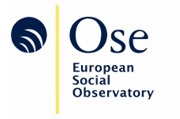The study on “How to implement key elements of the European Pillar of Social Rights: what is needed to guarantee a positive social impact” will provide the Workers’ Group of the European Economic and Social Committee (EESC) with recommendations on effective implementation of the European Pillar of Social Rights. Particular attention is given to the ways in which social partners and civil society could play an important role in consultation and participation, in particular through the EESC. The study focuses on three priority areas: fair working conditions, collective bargaining and wages.
Social inclusion
The OSE was awarded a new contract with the Belgian Federal Public Service Social Security with a view to writing the ‘International Digest’ for the quarterly Belgian Review for Social Security (RBSS/BTSZ). The digest will continue to provide a regular overview of international developments (EU, OECD, ILO etc.) that have a direct or indirect impact on social protection and social inclusion policies and debates. The RBSS/BTSZ is available online, in French and Dutch.
OSE researcher involved: Cécile Barbier
The European Social Policy Network (ESPN) was established in July 2014 on the initiative of the European Commission to provide high quality and timely independent information, advice, analysis and expertise on social policy issues in the European Union and neighbouring countries. In particular, the ESPN will support the Commission in monitoring progress towards the EU’s social protection and social inclusion objectives as set out in the Europe 2020 Strategy, the Social Open Method of Coordination and the Social Investment Package.
As part of the preparation of an Opinion on guaranteed minimum income at European level, the Workers' Group of the European Economic and Social Committee (EESC) contracted the OSE to conduct a study entitled “Towards a European Minimum Income”. The main objective of this research is to explore the feasibility of introducing a European instrument relating to non-contributory minimum income schemes for able-bodied persons of working age.
The OSE has started a new research project, together with the European Anti-Poverty Network (EAPN), which is in charge of the overall coordination. Funded by the European Commission, the European Minimum Income Network (EMIN) project will first build a network of national experts (social and anti-poverty NGOs and people experiencing poverty) with the aim to review and compare national situations as regards minimum income schemes.
The OSE was awarded a contract with the Belgian Federal Public Service Social Security with a view to writing an “international digest” for the quarterly Belgian Review for Social Security (RBSS/BTSZ). The digest will provide a regular overview of international developments (EU, OECD, ILO etc.) that have a direct or indirect impact on social protection and social inclusion policies and debates.
OSE researchers involved in this project: Cécile Barbier
Within the framework of the European Year for Active Ageing and Solidarity Between the Generations, the OSE was given by the Federal Social Security, the scientific supervision of the closing conference (27 November 2012) at the Belgian level, as well as preparatory hearings (September and October 2012) that should identify the topics most important. The objective is to propose a course of action and reflection for policy makers.
The European Social Observatory is part of the four year NEUJOBS Project, funded by the European Commission (FP7). The main objective will be to highlight the opportunities and difficulties that result from the socio-economic and ecological transitions of the labour market. In order to include all stakeholders’ positions in the study, social partners will be actively involved. Results should allow decision makers to take the most appropriate social and economic measures and avoid/reduce negative impacts on some groups of workers (older workers, migrants, Roma, etc.).
The European Social Observatory has been asked to draft, in collaboration with Ides Nicaise from the Higher Institute for Labour Studies (HIVA, KU Leuven), an assessment of the extent to which the measures proposed in the Belgian National Reform Programmes (NRP) are ensuring progress towards the Europe 2020’s social inclusion objectives and target.
The OSE, along with the Research Institute for Work and Society (HIVA, KULeuven), conducted a research project aimed at exploring the practices of Belgian Public Centres for Social Action (PCSA), whose work is related to the social integration of first and second-generation migrants. The research investigated the practices of PCSAs, the partnerships that are mobilised and the interaction with other (social) policy strands. The project combined the findings of a web survey of the 587 Belgian PCSAs with more in-depth case studies.
